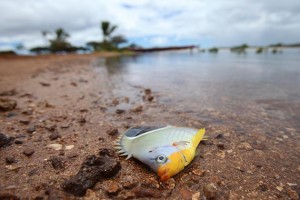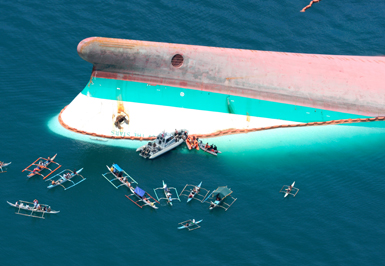 On September 12, 2013, a pipeline in Honolulu, Hawaii leaked 233,000 gallons of molasses into the water. The massive spill has been a catastrophe to marine wildlife in the area. So far clean-up crews have recovered over 25,000 dead fish and other sea creatures.
On September 12, 2013, a pipeline in Honolulu, Hawaii leaked 233,000 gallons of molasses into the water. The massive spill has been a catastrophe to marine wildlife in the area. So far clean-up crews have recovered over 25,000 dead fish and other sea creatures.
Unfortunately, there is very little that can be done in the way of clean-up. Unlike oil, molasses sinks to the bottom of the ocean floor, basically suffocating the wildlife. However, one positive aspect of a molasses spill over an oil spill is that the ocean can resolve many of the problems on its own. Bacteria living in the ocean can break down and absorb the molasses spill much more efficiently than it could have with oil.
Matson Navigation Company, the company responsible for the spill, may face lawsuits from surrounding businesses and others that have been severely negatively impacted by this disaster. Matson has already promised that it will pay for all clean-up efforts, but the company still may face fines from government entities for the environmental impact of the spill.
Have you been impacted by the spill in Hawaii? If so, contact the offshore attorneys at Kirkendall Dwyer LLP to find out if you may be eligible for compensation.




